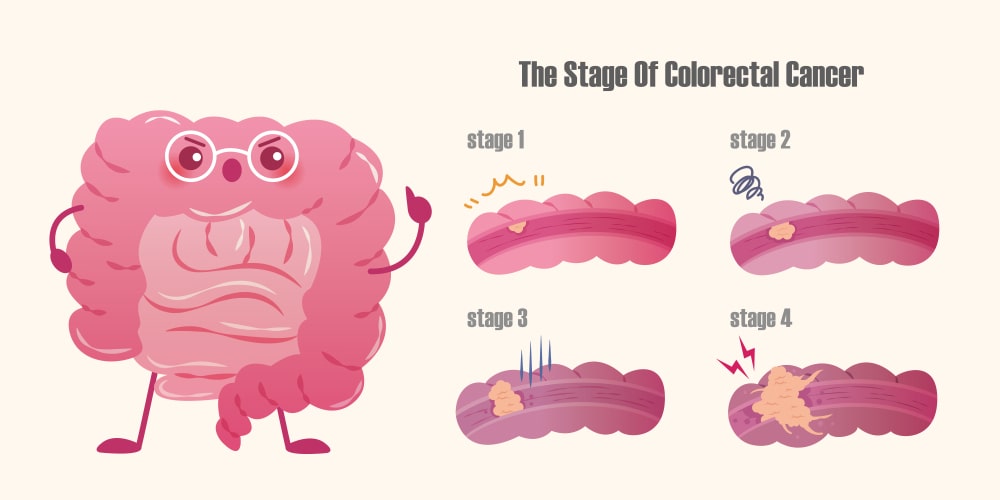Pioneer Woman And Her Battle With Stage 4 Colon Cancer
Pioneer Woman, known for her culinary skills and vibrant personality, has recently opened up about her battle with stage 4 colon cancer. This personal journey not only highlights the struggles faced by those diagnosed with this serious illness but also emphasizes the importance of awareness, early detection, and treatment options available for colorectal cancer. In this comprehensive article, we will delve into the life of Pioneer Woman, the challenges of facing stage 4 colon cancer, and the critical information that can aid in understanding this disease.
Colon cancer is a growing concern among many, affecting thousands of individuals each year. As we explore the story of Pioneer Woman, we will also provide insights into the symptoms, risk factors, and treatment choices for colon cancer. This article is not just about one individual’s experience; it serves as a resource for anyone seeking knowledge about this life-altering diagnosis.
With the rise of colorectal cancer cases, it is vital to recognize the signs and symptoms early on. By sharing her journey, Pioneer Woman provides hope and encouragement to others facing similar battles. As we navigate through this article, we aim to educate readers about the realities of stage 4 colon cancer while offering a glimpse into the life of a beloved figure who continues to inspire many.
Table of Contents
- Biography of Pioneer Woman
- Personal Life and Background
- Overview of Colon Cancer
- Understanding Stage 4 Colon Cancer
- Symptoms of Stage 4 Colon Cancer
- Treatment Options for Stage 4 Colon Cancer
- Living with Stage 4 Colon Cancer
- Importance of Support Systems
- Conclusion
Biography of Pioneer Woman
Pioneer Woman, whose real name is Ree Drummond, is a renowned American blogger, author, and television personality. She has gained fame for her cooking show on the Food Network and her popular blog that features recipes and insights into her life on a ranch in Oklahoma.
Personal Data and Biodata
| Full Name | Ree Drummond |
|---|---|
| Date of Birth | January 6, 1969 |
| Occupation | Food Writer, Author, TV Host |
| Hometown | Barbosa, Oklahoma |
| Notable Works | The Pioneer Woman Blog, Cookbook Series, TV Show |
Overview of Colon Cancer
Colon cancer, or colorectal cancer, begins in the large intestine (colon) or rectum. It typically develops from precancerous polyps—small clumps of cells that form on the lining of the colon. If not detected and removed, these polyps can become cancerous over time.
This type of cancer is more common in individuals over 50, although younger people can also be affected. Risk factors include family history, sedentary lifestyle, high-fat diet, and certain genetic conditions.
Understanding Stage 4 Colon Cancer
Stage 4 colon cancer, also known as metastatic colon cancer, is the most advanced stage of the disease. At this stage, cancer has spread beyond the colon to other organs, such as the liver, lungs, or distant lymph nodes. This spread significantly complicates treatment and can drastically affect the prognosis.
Diagnosis at this stage often involves imaging tests, such as CT scans, MRIs, and PET scans, to determine the extent of the disease. Treatment options vary and may include chemotherapy, targeted therapies, and palliative care to manage symptoms.
Symptoms of Stage 4 Colon Cancer
Recognizing the symptoms of stage 4 colon cancer is crucial for early intervention. Some common symptoms include:
- Unexplained weight loss
- Persistent abdominal pain or discomfort
- Changes in bowel habits, including diarrhea or constipation
- Blood in stool or rectal bleeding
- Fatigue and weakness
If you or someone you know experiences these symptoms, it is essential to consult a healthcare professional for evaluation.
Treatment Options for Stage 4 Colon Cancer
Treatment for stage 4 colon cancer typically involves a multidisciplinary approach. Some of the main treatment options include:
- Chemotherapy: A systemic treatment that uses drugs to kill cancer cells.
- Targeted Therapy: Medications that specifically attack cancer cells with less damage to normal cells.
- Surgery: In some cases, surgery may be performed to remove tumors or affected organs.
- Palliative Care: Focused on providing relief from symptoms and improving the quality of life.
It is essential to discuss all available options with a healthcare provider to determine the best course of action based on individual circumstances.
Living with Stage 4 Colon Cancer
Living with stage 4 colon cancer can be challenging both physically and emotionally. Patients often face a range of side effects from treatments, including nausea, fatigue, and changes in appetite. Support from family, friends, and healthcare professionals is crucial during this time.
Maintaining open communication with healthcare providers can help manage symptoms and provide emotional support. Many patients find joining support groups beneficial, as they connect with others facing similar challenges.
Importance of Support Systems
A robust support system is vital for anyone battling cancer. This support can come from loved ones, healthcare professionals, or community resources. Engaging with support groups or counseling can provide emotional relief and practical advice on navigating treatment and daily life.
Moreover, educating family and friends about colon cancer can foster understanding and create a more supportive environment for the patient.
Conclusion
In conclusion, Pioneer Woman's experience with stage 4 colon cancer sheds light on the realities of this disease and emphasizes the need for awareness and education. By recognizing the symptoms and understanding treatment options, individuals can take proactive steps toward their health.
We encourage readers to stay informed about colon cancer and advocate for regular screenings. If you found this article helpful, please leave a comment, share your thoughts, or explore more articles on our site.
Thank you for reading, and we hope to see you back for more insightful content!
Who Is Delco Danny? Unraveling The Life Of A Social Media Sensation
Understanding Dan McIntosh: A Comprehensive Guide
Michael Barrett: The Visionary Cinematographer Redefining Visual Storytelling


